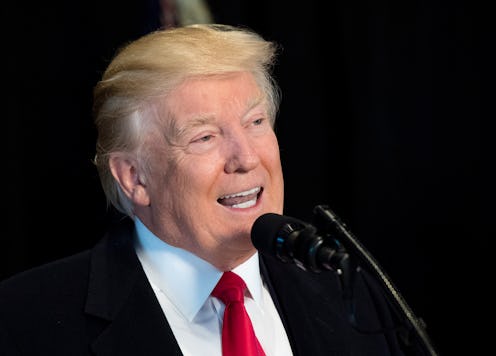News
McMaster May Handle Russia Differently Than Flynn

The Russia controversy surrounding President Donald Trump hasn't waned — even following the resignation of his now former National Security Adviser Michael Flynn. As you surely know, Flynn spoke to the Russian ambassador before Trump was inaugurated. He then misled Vice President Mike Pence about the content of those discussions. After The Washington Post broke the news, Flynn was out and the search for a new national security adviser began. After Trump's first pick declined, Lt. Gen. H. R. McMaster was named — an unknown pick to most Americans. So what is McMaster's Russia stance?
The Associated Press reported that in May 2016 at the Center for Strategic and International Studies, McMaster spoke about Russia's attempts to annex Crimea and destabilize Eastern Ukraine. He said that Russia's goal is to "collapse the post-Cold War security, economic, and political order in Europe and replace that order with something that is more sympathetic to Russian interests." In other words, he's definitely not the kind of person that would call to reassure Russia that economic sanctions will soon be lifted. Flynn was accused of doing this, though Russia has denied it and Flynn said he had no recollection of discussing sanctions but "couldn’t be certain that the topic never came up."
In general, Vox reports that McMaster is a "careful scholar and successful general who’s well-regarded in the Washington foreign policy establishment." The education is striking. He got his PhD at the University of North Carolina in history — nothing to sneeze at — and he has been working as the director of a military think tank, Army Capabilities Integration Center.
With this experience, he shouldn't run into the same issues as his predecessor — although that could eventually put him at odds with his boss, Trump. Michael McFaul, an ambassador to Russia under Obama, tweeted his support for McMaster, writing that he is a "major upgrade." "I have never felt better about Trump administration regarding national security," McFaul wrote. Even more important to see for some Trump critics is McFaul's view that there are "clashes to come" and that McMaster "will not be afraid to question his boss."
Being at odds with Trump is not anyone's idea of a good time, but perhaps McMaster sees it as his patriotic duty. At Mar-a-Lago, where the pick was announced, McMaster told the press, "I'm grateful to you for that opportunity, and I look forward to joining the national security team and doing everything that I can to advance and protect the interests of the American people." Those, of course, might not always align with the administration's goals.
As for what Russia thinks of McMaster, the Kremlin has no comment — far better than praise, all things considered. Bannon will still have plenty of influence in foreign policy and national security, so the country's not out of the woods yet. But it is good to see that there's a counterweight to his views on the White House team.